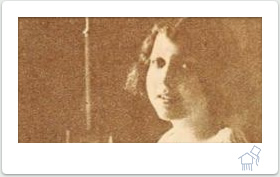Here's the introduction to my anthology of some poems by women from Latin America, translated from Spanish to English. It explains my research methodology and the theories I developed while reading and translating.
* Introduction to Towards an Anthology of Spanish American Women Poets, 1880-1930 - HTML
* Introduction to Towards an Anthology of Spanish American Women Poets, 1880-1930 - PDF (154K, 42 pages)
Here are a few of my main points.
I considered poems by several different criteria; any one of them were sufficient.
* work of high literary quality by my own judgment
* work that was important in its time
* work is by a woman who was part of a known community of women writers
* work has a strong feminist message
* work is representative of a well-known category or type of poetry of its time and place
* work that was intertextual with other poems
I chose to use chronological juxtaposition, not by author's birth date or publication of first book, but by when they were active in literary communities.
Some of the point of the anthology is to provide a backdrop for the more well known poets of that time and place. So, for instance, I believe that readings of Gabriela Mistral or Delmira Agustini may change when seen in context with the poems by their contemporary female authors writing in Spanish.
And,
Last but not least, I would like to shift the balance of gender in the practice of defining literary movements and other groupings of poetic styles. By re-presenting a broad range of women's work from a particular time period, I hope to make it possible to refocus current definitions of literary quality. For example, modernismo as a movement was defined from men's work, and then, in many cases, quality was determined from whether a poem and a poet's life fit that definition of modernismo. Therefore, I feel it is a useful experiment to begin to define literary categories from a body of women's work, from which it is possible to form other parameters of literary quality. To begin that task, it was first necessary to find the women’s poetry.
I began this project with the assumption and belief that there were women poets in Latin America 100 years ago who are worth reading today. My initial questions were: Which women were writing? What were their names? Where and how can I find their work to judge it for myself?

One more bit where I quote myself. (I am SO cheating.)
I noticed a common theme in many anthologies, including those which were promoting a feminist view: they hailed women's recent work as if women's poetry were a new phenomenon. As Adrienne Rich said in 1980: "Each feminist work has tended to be received as if it emerged from nowhere; as if each one of us had lived, thought, and worked without any historical past or contextual present. This is one of the ways in which women's work and thinking has been made to seem sporadic, errant, orphaned of any tradition of its own" (11). Joanna Russ also pointed out this problem in How To Suppress Women’s Writing (1983); she calls it “the myth of the isolated achievement” (62). This isolation was especially apparent in short biographical notes in poetry anthologies, in which male poets were discussed in a context of other men, while women poets were presented as lone examples of excellence.
This bit about the "myth of the isolated achievement" is a pattern I see over and over again when women's work is discussed -- in literature, in poetry, in technology, in politics, or anywhere.
Look for it yourself in articles with a supposedly positive spin. Once you start to see it, and if you start looking at history, and women's history, you will see the poison for what it is -- the perpetual erasure of our history, and a tool that keeps us isolated from each other and from generations past and upcoming.
The time changes, but the pattern remains the same; not just in Latin American poetry, but poetry in general. And not just in poetry, but any genre of writing. Not just in writing, but in many, many fields. In poetry, a distant foremother is invoked, perhaps Sappho or Sor Juana. The lack of (significant) women is pointed out. Then a comparatively recent "appearance" of women is celebrated. The women appear, as if by magic or spontaneous generation. The crest of that wave of women's achievement is always right now, or just about to happen.
You think you have achieved something in life? Made the situation better? Broke ground? Our daughters will be pointed at as if they were the first... over and over again. Unless we break through the wall, somehow, as I hope that the Net and blogging will help to achieve. Women have been achieving great things for as far back as I have ever tried to look.









2 comments:
I am a lazy feminist. I grew up thinking everything was possible for me, that both genders were equal, that nothing could hold me back. In fact, I didn't see the gender gap in action until I gave birth to a son, three and a half years after his sister was born. Now I understand the basis for stereotypes, not that I necessarily agree with them. I also see how I ignored the subjugation of women while growing up because I was so comfortable. I mean, c'mon... my mom worked three jobs to keep me in our house and in private school when my dad decided to take up with someone else. How did I miss that? Why did I resent HER for his leaving? How did this diatribe spark out of reading about your anthology? I guess because when I took women's studies in college I thought it was ancient history, although as you remind us at the end of your post, it's woefully apparent this crap is still plaguing us today.
Spreading the HP wealth:
I am on a non-profit committee working on outfitting the first-ever library for an inner-city K-8 grade school that has been around since the 1940s. We are buying them books, furnitures, smart boards… the works, so it would be nice to have a little extra goodness to shower them with. I would like to keep one of the laptops for myself; I've only ever used Mac desktops so I would be curious to see how HP/Windows compares.
I forgot to link back to my blog:
http://www.superdumbsupervillain.com
Post a Comment